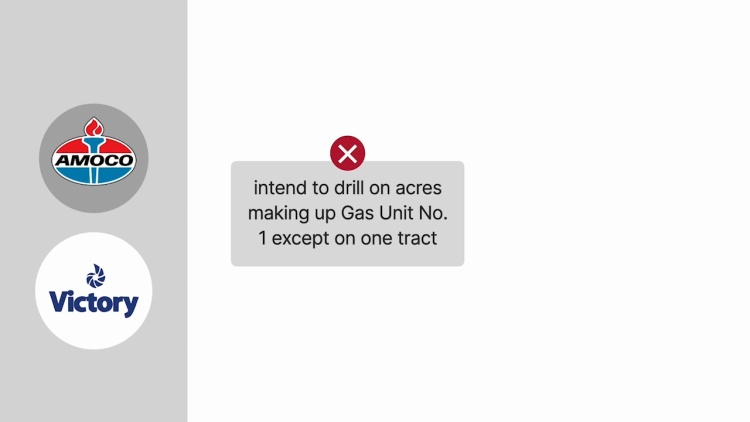Amoco Production Co. v. Underwood
Texas Court of Civil Appeals
558 S.W.2d 509 (1977)

- Written by Sean Carroll, JD
Facts
On May 29, 1970, L.T. Underwood and Ora Lee Underwood (plaintiffs) signed a series of gas leases with Amoco Production Co. (Amoco) (defendant). Each lease had a five year primary term and contained a pooling clause. As part of a separate agreement with Victory Petroleum Corporation (Victory) (defendant), Amoco assigned the leases to Victory. On May 20, 1975, nine days before the primary term on the leases was set to expire, the vice president of Victory sent a letter to Amoco, stating that the leases were set to expire and that Victory would be filing a gas unit declaration pursuant to the pooling clauses in the leases. The letter stated that the unit “has been designed to hold the majority of your leases which will expire on May 29, 1975.” On the same day, Victory signed a gas unit designation pooling the plaintiffs’ four leases with four other leases. Once designated, the gas unit extended the primary term of the leases with the plaintiffs. There was little need to pool the leases in terms of practical production purposes. The plaintiffs brought suit, seeking cancellation of the leases on the ground that the defendants had not invoked the pooling clauses in good faith. The jury found in favor of the plaintiffs. The defendants appealed.
Rule of Law
Issue
Holding and Reasoning (McCloud, C.J.)
What to do next…
Here's why 907,000 law students have relied on our case briefs:
- Written by law professors and practitioners, not other law students. 47,100 briefs, keyed to 996 casebooks. Top-notch customer support.
- The right amount of information, includes the facts, issues, rule of law, holding and reasoning, and any concurrences and dissents.
- Access in your classes, works on your mobile and tablet. Massive library of related video lessons and high quality multiple-choice questions.
- Easy to use, uniform format for every case brief. Written in plain English, not in legalese. Our briefs summarize and simplify; they don’t just repeat the court’s language.





